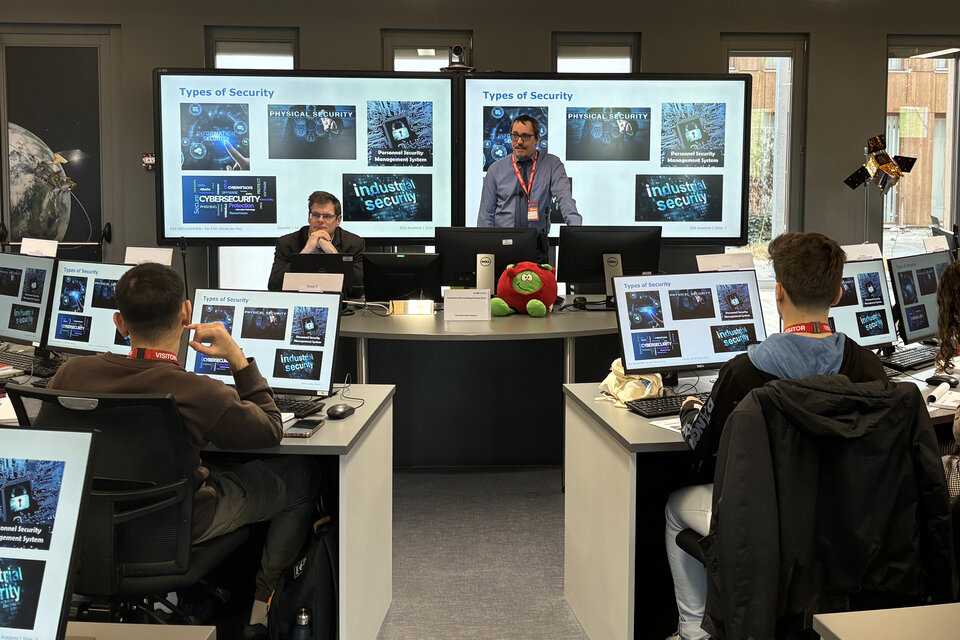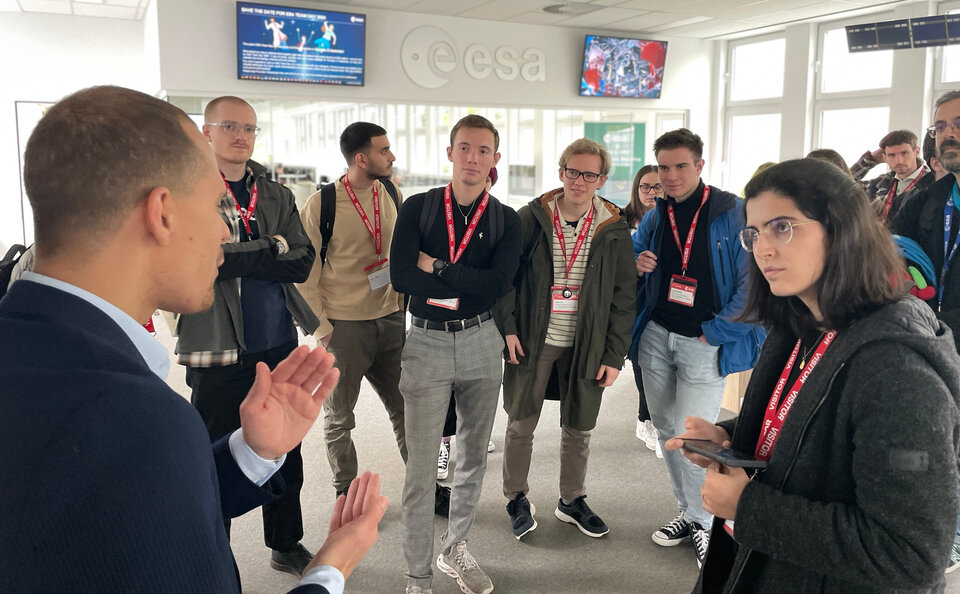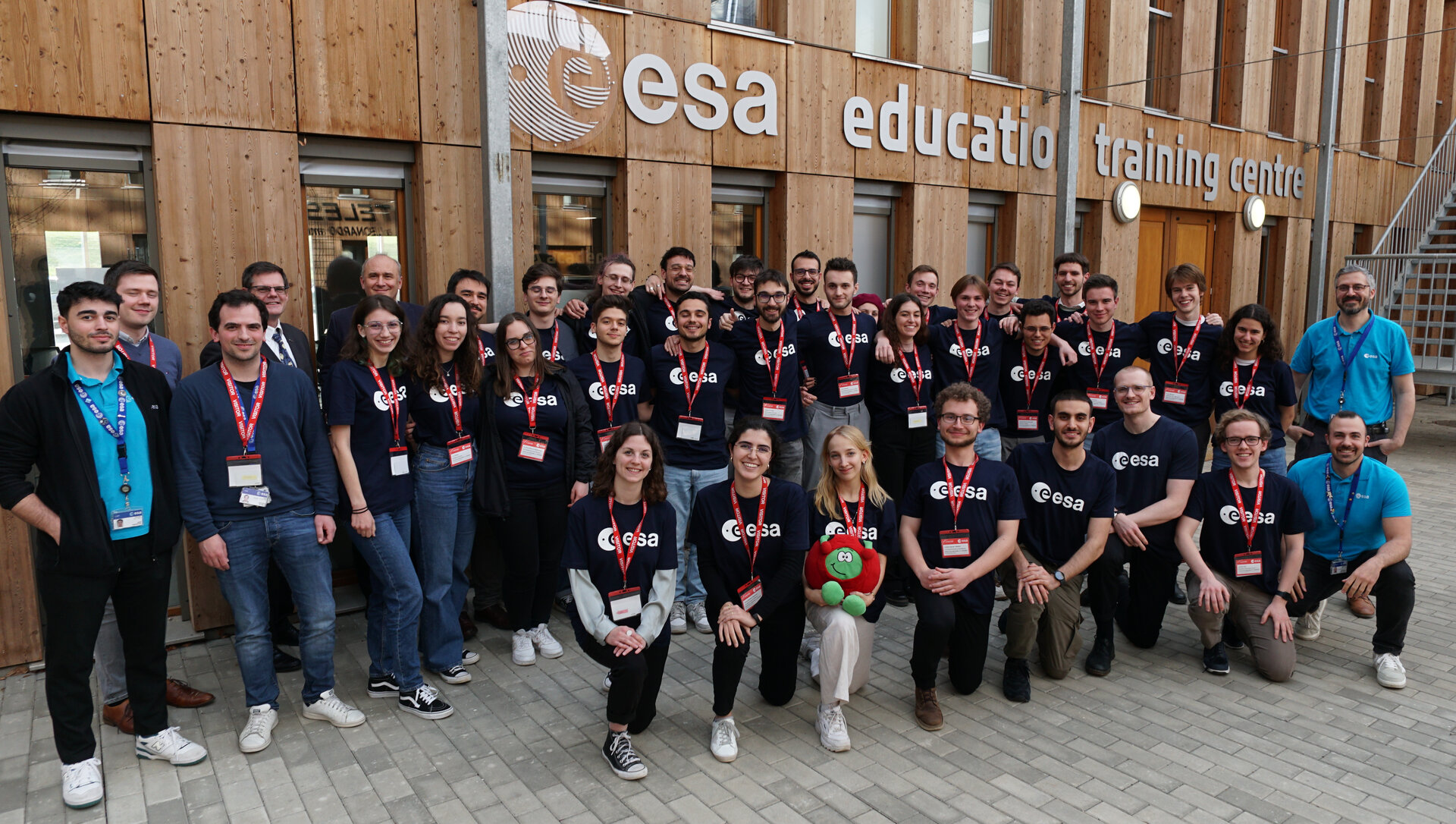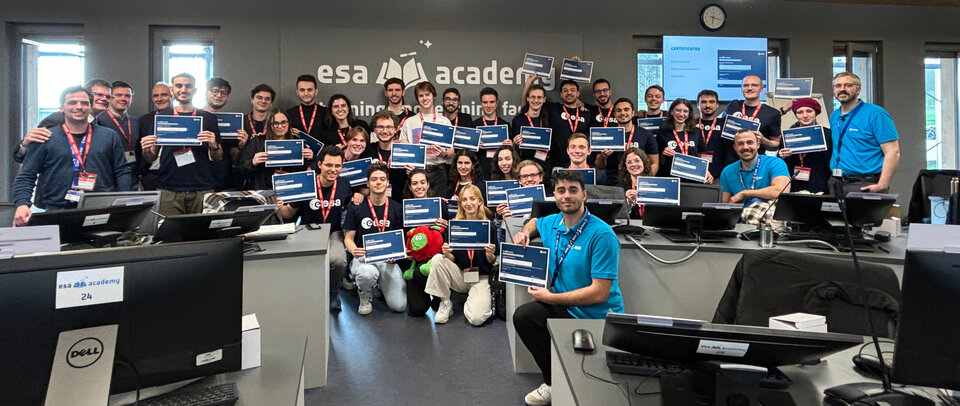Cybersecurity Training Course 2024 - Pilot edition successful
The collaboration between the ESA's Security Office and Education Office has proven highly effective in coordinating the inaugural ESA Academy's Cybersecurity Training Course 2024!

Between 8 and 12 April 2024, a group of thirty university students specializing in engineering, computer sciences, and management took part in a course hosted at the ESA Academy's Training and Learning Facility located at ESEC-Galaxia in Belgium.
A team of four experts from the Security Office and the Directorate of Technology, Engineering, and Quality provided students with comprehensive insights into the realm of space cybersecurity. The sessions encompassed theoretical aspects such as the fundamentals of (cyber-)security, as well as risk analysis and mitigation. Additionally, students engaged in practical exercises involving cryptography and radio-frequency communications, enhancing their hands-on understanding of the concepts discussed.
"This ESA Cybersecurity Training course has been a brilliant experience! Lessons were provided by outstanding experts and all the students were invested (in learning, but also in fun)."

Formal lectures were complemented by group projects challenging students to tackle crucial problems in designing secure systems, particularly for space missions. Considerations included the mission orbit and potential threats based on payload type (robotic or human, communication or navigation, etc.). Groups of students with diverse backgrounds collaborated to study and design five distinct operational scenarios, based on those five profiles:
- Group 1: MEO, Robotic, Payload Hosted Externally
- Group 2: GEO, Telecoms (single satellite), 15-year development/long mission duration
- Group 3: Lunar or Mars orbit, Servicing, Political/Wartime level of threat
- Group 4: Lunar or Mars orbit, Navigation Constellation, Hosted Military Payload
- Group 5: LEO, Servicing, Ground-Breaking Commercial
They needed to assess the mission's context and understand their clients' requirements while pinpointing potential risks and implementing appropriate mitigation controls, like employing cryptography.
On the final day, students presented their projects, demonstrating their analysis and proposed solutions. Trainers actively participated in these sessions, providing assistance and guidance. The students' works impressed the trainers, who assessed them based on their final presentation and their involvement during the project.
"Reflecting on the week, I'm realizing what made it special is not the material, but all the people around it. Every trainer was eager to answer questions beyond the original scope of the lecture and discuss related topics in the breaks, the organizers cared about our needs at every step of the way, and I learned as much from the other students as I did from the lectures."

Visit of the ESEC-Redu site
Students were given the chance to visit the ESEC-Redu site, which houses satellite communications facilities and upcoming cybersecurity centres: the CSOC (Cyber Security Operation Centre) and the SCCoE (Security Cyber Centre of Excellence). They had the opportunity to attend presentations by these entities and witness demonstrations showcasing their capabilities.
Certificates of Participation
Students received a course transcript and a certificate of participation, enabling them to apply for ECTS credits from their universities.
"Participating in ESA's cybersecurity training was both enlightening and enjoyable. Exploring the different ways cyber threats can manifest in space was particularly fascinating. The combination of engaging group presentations and the exclusive tour of the facilities truly enhanced the learning experience, making it not just educational but also immensely enjoyable. PS, you make great friends too!"















 Germany
Germany
 Austria
Austria
 Belgium
Belgium
 Denmark
Denmark
 Spain
Spain
 Estonia
Estonia
 Finland
Finland
 France
France
 Greece
Greece
 Hungary
Hungary
 Ireland
Ireland
 Italy
Italy
 Luxembourg
Luxembourg
 Norway
Norway
 The Netherlands
The Netherlands
 Poland
Poland
 Portugal
Portugal
 Czechia
Czechia
 Romania
Romania
 United Kingdom
United Kingdom
 Slovenia
Slovenia
 Sweden
Sweden
 Switzerland
Switzerland



























